Marlene Laruelle in the Politics and Rights Review:
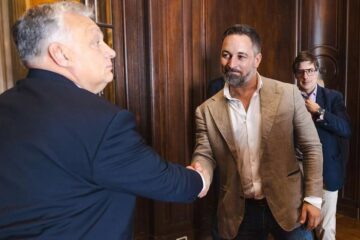 Scholarship on populism has dominated the last two decades but is now retreating in the face of a new concept that seems better equipped to capture the current transformations in our society: that of illiberalism. Illiberalism emerged first in the transition studies field (one may recall Fareed Zakaria’s famous “Illiberal Democracy” article in Foreign Affairs from 1997), as well as in the Asian Studies field, with studies on the rise of East Asian values embodied by Singapore.
Scholarship on populism has dominated the last two decades but is now retreating in the face of a new concept that seems better equipped to capture the current transformations in our society: that of illiberalism. Illiberalism emerged first in the transition studies field (one may recall Fareed Zakaria’s famous “Illiberal Democracy” article in Foreign Affairs from 1997), as well as in the Asian Studies field, with studies on the rise of East Asian values embodied by Singapore.
It then grew to encompass the Central European democratic backlash, encapsulated by Viktor Orbán’s Hungary, before eventually reaching the study of the well-established Western democracies and their liberal erosion in the 2010s. The move from an adjective, “illiberal,” to a noun, “illiberalism,” reflects both the intellectual thickening of the protest mood against the current social order and, simultaneously, a better conceptualization of it in the scholarship.
The concept of illiberalism indeed provides a far better descriptor than does populism, as the former asserts that we have moved well beyond the stage of a mere protest mood: parts of our constituencies are now ready to experiment with different social orders.
More here.
Enjoying the content on 3QD? Help keep us going by donating now.

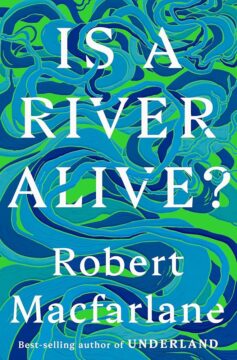 Nature writer Robert Macfarlane will need little introduction, having authored a string of successful books on people, landscape, and language. I was impressed by his 2019 book
Nature writer Robert Macfarlane will need little introduction, having authored a string of successful books on people, landscape, and language. I was impressed by his 2019 book  When he was France’s finance minister in the 1960s, former French President Valéry Giscard d’Estaing famously complained about the “exorbitant privilege” that the dollar’s position as the world’s leading reserve currency conferred on the United States. This meant, essentially, that the US could borrow at low interest rates, run persistently large trade deficits, and print money to finance its budget deficits. He never could have imagined that the US would end up letting these advantages slip through its fingers.
When he was France’s finance minister in the 1960s, former French President Valéry Giscard d’Estaing famously complained about the “exorbitant privilege” that the dollar’s position as the world’s leading reserve currency conferred on the United States. This meant, essentially, that the US could borrow at low interest rates, run persistently large trade deficits, and print money to finance its budget deficits. He never could have imagined that the US would end up letting these advantages slip through its fingers. M
M From the Christian perspective, the hyphen is a sign of Jewish translatability; but the same sign, read, we might say, from right to left, also points to a more confrontational reality, that of Jewish resistance to being translated (elevated) into a (higher) Christian register. The Jewish insistence on reading “the Bible” in Hebrew every week, in synagogue, to congregations whose first language was (and is) probably not the language of the patriarchs but the language of their non-Jewish neighbors, is a performance of otherness. We can see what is at stake in this attachment to the original when we appreciate the difference between reading Hebrew texts in Greek—from right to left—and reading the Bible as a Greek text, from left to right. From the perspective of the former, the Alexandrian translation of
From the Christian perspective, the hyphen is a sign of Jewish translatability; but the same sign, read, we might say, from right to left, also points to a more confrontational reality, that of Jewish resistance to being translated (elevated) into a (higher) Christian register. The Jewish insistence on reading “the Bible” in Hebrew every week, in synagogue, to congregations whose first language was (and is) probably not the language of the patriarchs but the language of their non-Jewish neighbors, is a performance of otherness. We can see what is at stake in this attachment to the original when we appreciate the difference between reading Hebrew texts in Greek—from right to left—and reading the Bible as a Greek text, from left to right. From the perspective of the former, the Alexandrian translation of 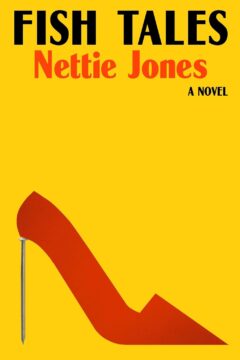 Fish Tales, released this spring in a new edition and still pioneering decades after its first run, slices into the flesh of the novel of ideas with events and characters who loom so large they leave no room for indulgent ideological abstractions; they are busy being sluts and disasters at the exact moment you might expect more recognizable or coherent archetypes to buckle begrudgingly into the routines of adult life and surrender to them for the sake of reputation, supposed stability, or ego. Transgressive to the point of exhilarating, Nettie Jones’s prose avoids etiquette or the impulse to virtue signal: this perspective of a girl molested by her schoolteacher, whose life subsequently becomes so centered on male approval she pretends she’s sexually liberated instead of a victim of circumstance and tragic hero, makes no excuses for the procession of orgies and nervous breakdowns that becomes the novel’s plot. Hedonism grows banal as we’re trapped in bed with the protagonist, her demons, and the doom disguised as suitors, flatterers, and one husband, Woody, who after a brief attempt at real union becomes Lewis’s overseer and benefactor, allowing her to hire prostitutes or travel to New York to meet with lovers while he takes his own new girlfriend. All the while he sustains Lewis, “his favorite woman,” with an allowance and a roof over her head.
Fish Tales, released this spring in a new edition and still pioneering decades after its first run, slices into the flesh of the novel of ideas with events and characters who loom so large they leave no room for indulgent ideological abstractions; they are busy being sluts and disasters at the exact moment you might expect more recognizable or coherent archetypes to buckle begrudgingly into the routines of adult life and surrender to them for the sake of reputation, supposed stability, or ego. Transgressive to the point of exhilarating, Nettie Jones’s prose avoids etiquette or the impulse to virtue signal: this perspective of a girl molested by her schoolteacher, whose life subsequently becomes so centered on male approval she pretends she’s sexually liberated instead of a victim of circumstance and tragic hero, makes no excuses for the procession of orgies and nervous breakdowns that becomes the novel’s plot. Hedonism grows banal as we’re trapped in bed with the protagonist, her demons, and the doom disguised as suitors, flatterers, and one husband, Woody, who after a brief attempt at real union becomes Lewis’s overseer and benefactor, allowing her to hire prostitutes or travel to New York to meet with lovers while he takes his own new girlfriend. All the while he sustains Lewis, “his favorite woman,” with an allowance and a roof over her head.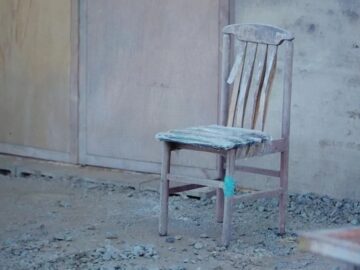 In the recent K-Drama Our Unwritten Seoul, a simple wooden chair emerges as the iconic stand-in (or sit-in) for a young farmer’s late grandfather, whose favorite chair it had once been. Broken and mended multiple times, patched together with tape, glue, and hastily hammered braces, the chair, on its last legs, gets tossed out by an over-zealous new employee. The young farmer is devastated.
In the recent K-Drama Our Unwritten Seoul, a simple wooden chair emerges as the iconic stand-in (or sit-in) for a young farmer’s late grandfather, whose favorite chair it had once been. Broken and mended multiple times, patched together with tape, glue, and hastily hammered braces, the chair, on its last legs, gets tossed out by an over-zealous new employee. The young farmer is devastated. To generate images,
To generate images, 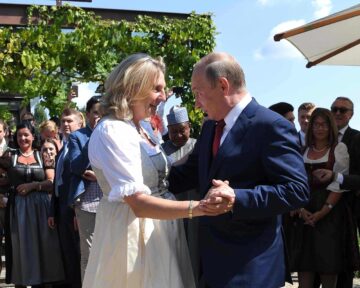 T
T After a train carrying chemicals derailed and caught fire in East Palestine, Ohio, in 2023, residents were exposed to carcinogens such as vinyl chloride, acrolein and dioxin. Since tumors are typically slow to develop, it could take decades to know what that did to the locals’ cancer risk, but there may be a quicker route to an answer: The residents’ dogs were also exposed, and dogs develop cancer more quickly.
After a train carrying chemicals derailed and caught fire in East Palestine, Ohio, in 2023, residents were exposed to carcinogens such as vinyl chloride, acrolein and dioxin. Since tumors are typically slow to develop, it could take decades to know what that did to the locals’ cancer risk, but there may be a quicker route to an answer: The residents’ dogs were also exposed, and dogs develop cancer more quickly. Vast swathes of the human genome remain a mystery to science. A new AI from Google DeepMind is helping researchers understand how these stretches of DNA impact the activity of other genes. While the
Vast swathes of the human genome remain a mystery to science. A new AI from Google DeepMind is helping researchers understand how these stretches of DNA impact the activity of other genes. While the 
 On June 5, 1975, on the seedy stage of CBGB on the Lower East Side of Manhattan, a band named Talking Heads took the stage for the first time. Unlike the Ramones, for whom they were opening, they weren’t sporting black leather jackets or edgy haircuts. David Byrne and Chris Frantz had met at art school a few years before, and the bassist, Tina Weymouth, had only learned to play her instrument six months prior. But within a few weeks, Talking Heads would be plastered on the cover of The Village Voice, well on their way to utterly transforming the downtown New York music scene. After Jerry Harrison joined Talking Heads in 1977, the band would go on to radically alter rock music’s relationship to avant-garde art and performance. In his new book, Burning Down the House, Jonathan Gould tells the story of how Talking Heads experimented their way to a singular musical style over the course of eight studio albums and one incredible concert film, Stop Making Sense, and he discusses their enduring influence despite having disbanded more than 30 years ago.
On June 5, 1975, on the seedy stage of CBGB on the Lower East Side of Manhattan, a band named Talking Heads took the stage for the first time. Unlike the Ramones, for whom they were opening, they weren’t sporting black leather jackets or edgy haircuts. David Byrne and Chris Frantz had met at art school a few years before, and the bassist, Tina Weymouth, had only learned to play her instrument six months prior. But within a few weeks, Talking Heads would be plastered on the cover of The Village Voice, well on their way to utterly transforming the downtown New York music scene. After Jerry Harrison joined Talking Heads in 1977, the band would go on to radically alter rock music’s relationship to avant-garde art and performance. In his new book, Burning Down the House, Jonathan Gould tells the story of how Talking Heads experimented their way to a singular musical style over the course of eight studio albums and one incredible concert film, Stop Making Sense, and he discusses their enduring influence despite having disbanded more than 30 years ago.